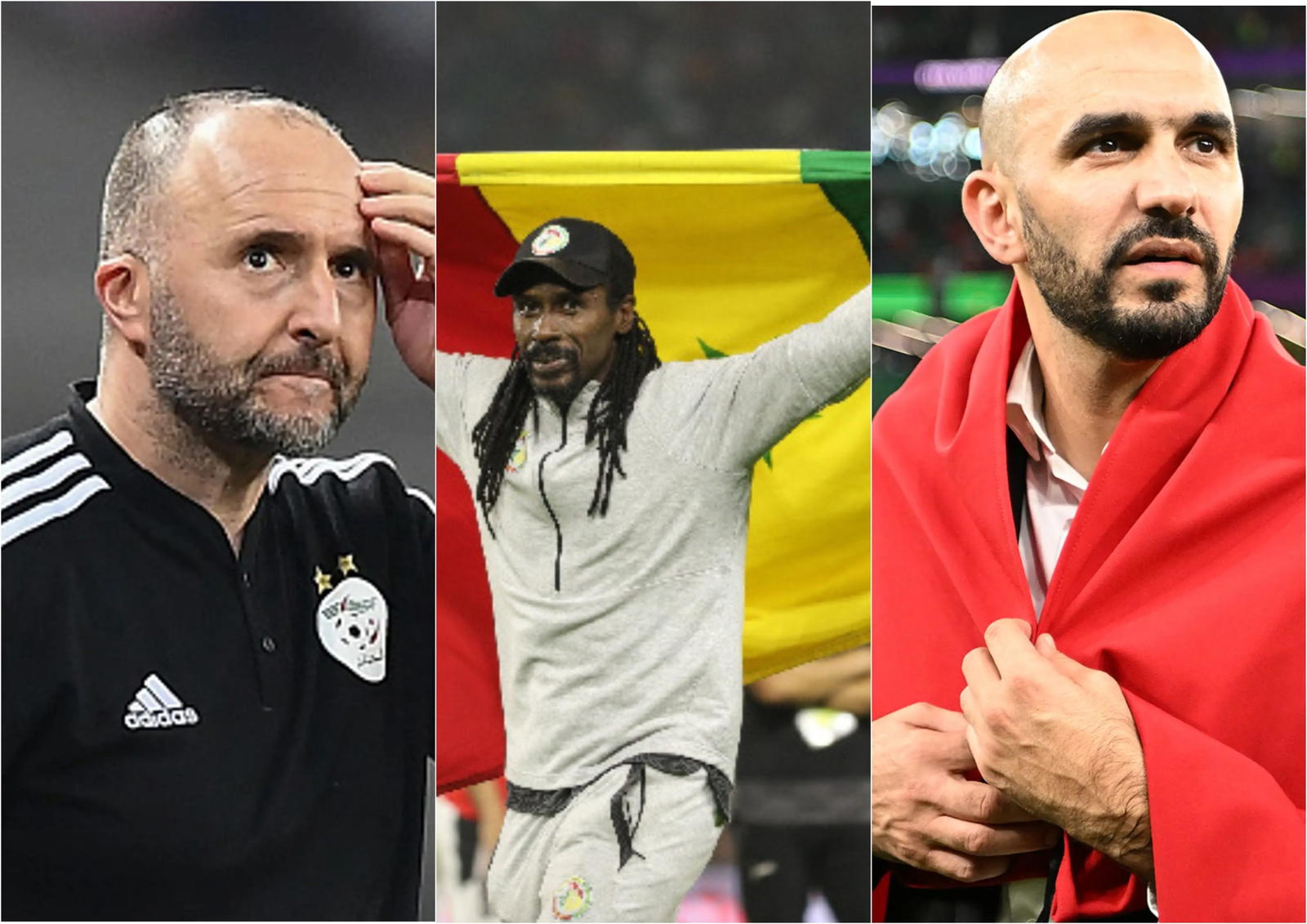
For years, African coaches have been at the centre of debates about taking charge of their national teams. In the past, foreign managers who were sometimes deemed unqualified have been at the helm of affairs for top national sides.
By Ayobami Okerinde
For years, African coaches have been at the centre of debates about taking charge of their national teams. In the past, foreign managers who were sometimes deemed unqualified have been at the helm of affairs for top national sides.
The trajectory of football changed on the continent with the 2022 FIFA World Cup in Qatar. For the first time in history, the coaches of Africa’s representatives at the Mundial were Africans: Rigobert Song (Cameroon), Aliou Cisse (Senegal), Otto Addo (Ghana), Walid Regragui (Morocco), and Jalel Kadri (Tunisia).
A testament to the unprecedented journey at the 2022 World Cup was Morrocco’s historic run to becoming the first African side to finish in the top four of the competition, beating Belgium in the group stage, Spain, and Portugal en route to the semifinal. However, a defeat to France ended the Atlas Lions’ lofty dreams.
Just before the World Cup, Senegal’s Aliou Cisse wrote his name in gold after winning the country’s first AFCON, in what has heralded a successful era in the country’s football.
Senegal’s clean swoop includes the U17 and U-20 AFCON titles. 20 years before his redemption, Cisse missed the penalty that handed Cameroon the title at the 2002 AFCON.
How African coaches have fared at AFCON
AFCON has been a breeding ground for foreign coaches who have made a name for themselves. This list includes France’s Claude Le Roy, who won the AFCON with Cameroon in 1988; Herve Renard, with two AFCON titles (Zambia, 2012; and Cote d’Ivoire, 2015); and Clemens Westerhof (Nigeria, 1994).
Since the creation of the competition in 1957, 16 out of 33 editions have been won by African coaches. Egypt won the inaugural edition, with Mourad Fahmy becoming the first coach to lift the coveted trophy.
On the honours list are Hassan Shehata (Egypt) and Charles Kumi Gyamfi (Ghana), with three titles each for their respective countries.
The tides have changed, with indigenous coaches winning the last two editions held in Egypt and Cameroon: Djamel Belmadi (Algeria) and Aliou Cisse (Senegal).
AFCON 2023 numbers
When AFCON kicks off, with ‘Akwaba’ blazing loudly in the stadiums and on the streets, 24 coaches will be on parade to win the title.
Of the 24 countries, 13 countries, including Senegal, Cameroon, and Mali, have indigenous coaches, while 11 countries, including Nigeria, Egypt, and host country, Cote d’Ivoire, have opted for foreign coaches.
12 out of the 13 nations with indigenous coaches have gone with coaches of their nationality, with Tanzania being the only exception to having a coach of Algerian descent.
Three of the 24 coaches have won the AFCON: Hugo Broos (2017), Djamel Belmadi (2019), and Aliou Cisse (2021).
A breakdown of the nationalities of the 11 foreign coaches: France (4), Portugal (3), Belgium (2), Ireland (1), and Israel (1).
Full list of coaches
Algeria: Djamel Belmadi (Algeria)
Angola: Pedro Goncalves (Portugal)
Burkina Faso: Hubert Velud (France)
Cameroon: Rigobert Song (Cameroon)
Cape Verde: Bubista (Cape Verde)
Cote d’Ivoire: Jean Louis Gasset (France)
Congo DR: Sebastien Desabre (France)
Egypt: Rui Costa (Portugal)
Equatorial Guinea: Juan Micha (Equatorial Guinea)
Gambia: Tom Sainfeit (Belgium)
Ghana: Chris Hughton (Republic of Ireland)
Guinea: Kaba Diawara (Guinea)
Guinea Bissau: Baciro Cande (Guinea Bissau)
Mali: Eric Chelle (Mali)
Mauritania: Amir Abdou (France)
Morocco: Wahid Regragui (Morocco)
Mozambique: Chiquinho Conde (Mozambique)Namibia: Collins Benjamin (Namibia)
Nigeria: Jose Peseiro (Portugal)
Senegal: Aliou Cisse (Senegal)
South Africa: Hugo Broos (Belgium)
Tanzania: Abdel Amrouche (Algeria)
Tunisia: Jalel Kadri (Tunisia)
Zambia: Avram Grant (Israel)



0 Comments